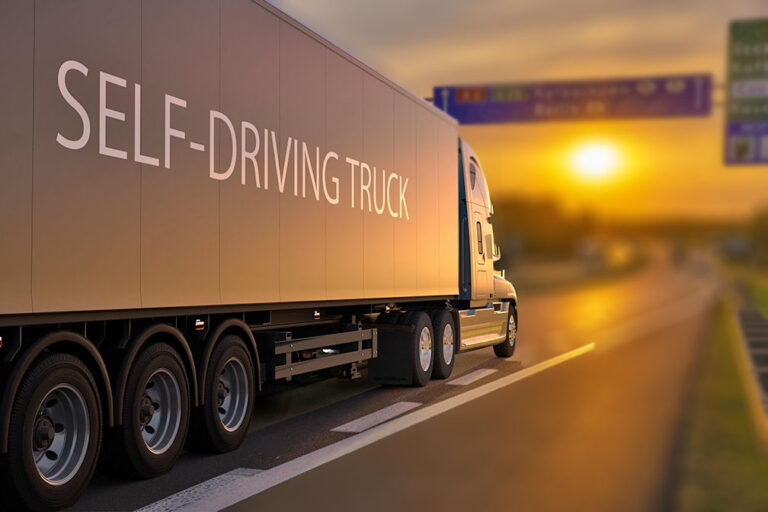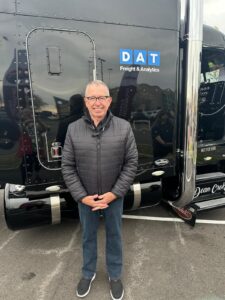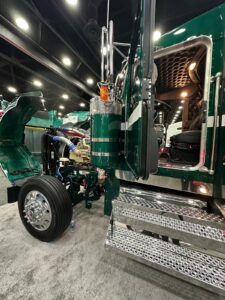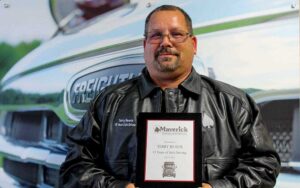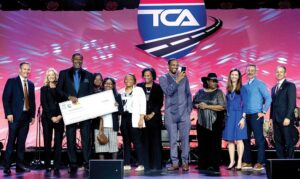TORONTO — Artificial intelligence (AI) transportation company Waabi has raised $200 million to help fund its goal of deploying fully autonomous Class 8 rigs on America’s highways in 2025.
According to a news release, the fundraising effort was led by by Uber and Khosla Ventures.
“The funding round includes participation from best-in-class strategic investors NVIDIA, Volvo Group Venture Capital, Porsche Automobil Holding SE, Scania Invest and Ingka Investments,” the news release notes.
Additional financial investors include HarbourVest Partners, G2 Venture Partners, BDC Capital’s Thrive Venture Fund, Export Development Canada, Radical Ventures, Incharge Capital and others.
The new funding brings the total investment in Waabi to more than $280 million.
In addition to funding the autonomous rigs’ creation, Waabi’s new capital will also be used to grow the company’s commercial operations and expand its team in both Canada and the United States.
The funding builds on recent momentum for Waabi, including the opening of its new Texas AV trucking terminal, a collaboration with NVIDIA, to integrate NVIDIA DRIVE Thor into the Waabi Driver. Waabi also maintains an ongoing partnership with Uber Freight, running autonomous shipments for Fortune 500 companies and top tier shippers in Texas.
“Only three years on from the company’s inception, Waabi is on the verge of reaching Level 4 autonomy,” according to the news release. “This industry-leading pace and capital efficiency is made possible through the company’s revolutionary approach to unleashing generative AI in the physical world.”
Level 4 is considered “high automation” by the National Highway Traffic Safety Administration.
When engaged, a Level 4 autonomous system is fully High responsible for driving tasks. When engaged, a human driver is not needed to operate the vehicle.
“Waabi has pioneered a single end-to-end AI system that is capable of human-like reasoning, enabling it to generalize to any situation that might happen on the road, including those it has never seen before,” the news release states. “Because it is able to reason, the system requires significantly less training data and compute resources compared to other end-to-end approaches.”
Waabi’s system is also fully interpretable, and its safety can be validated and verified, company officials say.
“I have spent most of my professional life dedicated to inventing new AI technologies that can deliver on the enormous potential of AI in the physical world in a provably safe and scalable way,” said Raquel Urtasun, founder and CEO of Waabi. “Over the past three years, alongside the incredible team at Waabi, I have had the chance to turn these breakthroughs into a revolutionary product that has far surpassed my expectations. We have everything we need — breakthrough technology, an incredible team, and pioneering partners and investors — to launch fully driverless autonomous trucks in 2025. This is monumental for the industry and truly marks the beginning of the next frontier for AI.”
Dara Khosrowshahi, CEO of Uber, said his company believes in the potential of autonomous vehicles.
He said that they can “revolutionize transportation, making a safer and more sustainable future possible.”
“Raquel is a visionary in the field and, under her leadership, Waabi’s AI-first approach provides a solution that is extremely exciting in both its scalability and capital efficiency,” Khosrowshahi added.
Born in Pine Bluff, Arkansas, and raised in East Texas, John Worthen returned to his home state to attend college in 1998 and decided to make his life in The Natural State. Worthen is a 20-year veteran of the journalism industry and has covered just about every topic there is. He has a passion for writing and telling stories. He has worked as a beat reporter and bureau chief for a statewide newspaper and as managing editor of a regional newspaper in Arkansas. Additionally, Worthen has been a prolific freelance journalist for two decades, and has been published in several travel magazines and on travel websites.

